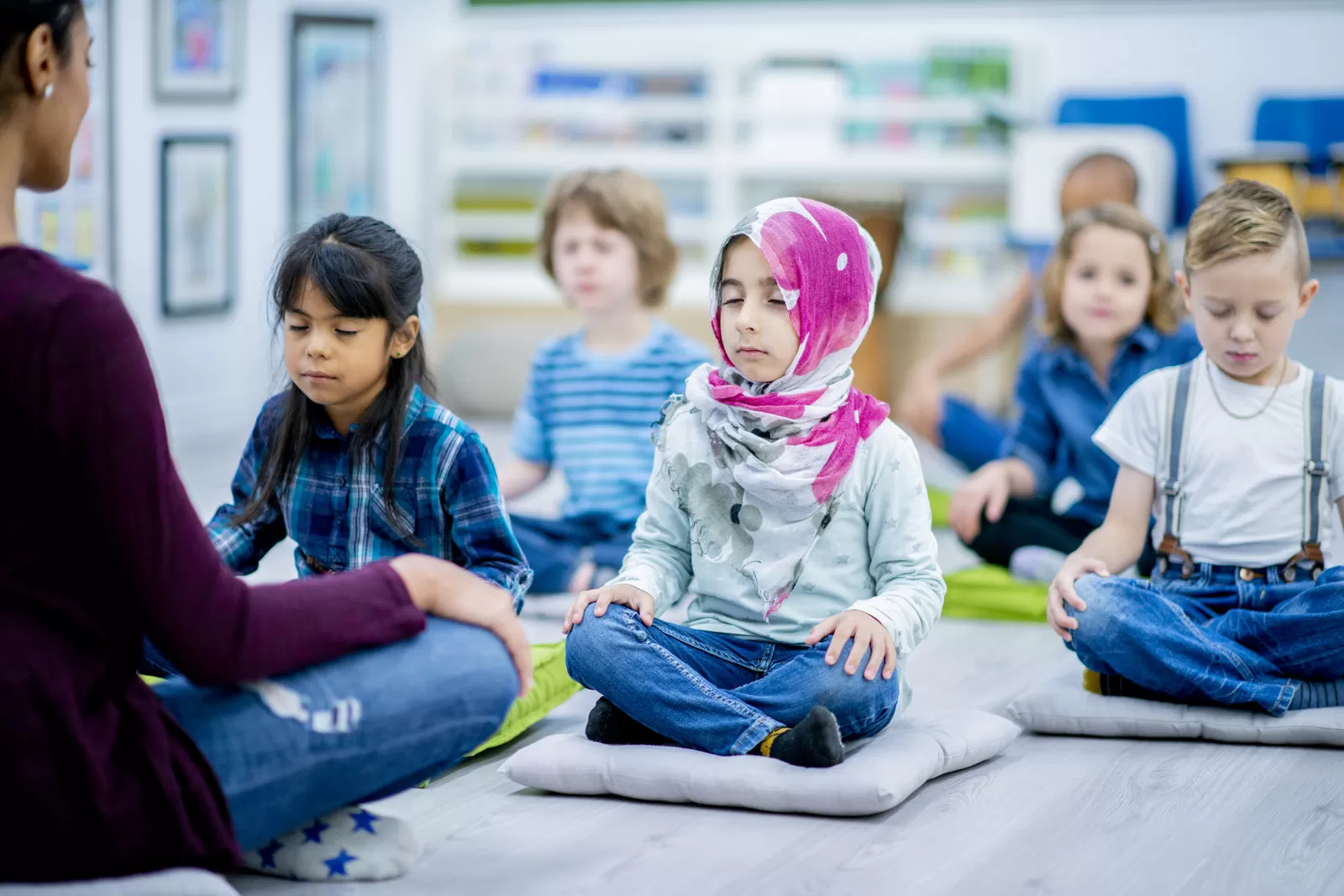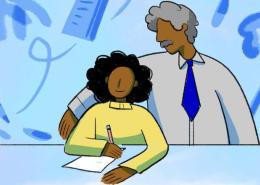Why Raising Health Literate Children Is Important

Annlouise Assaf’s grandmother didn’t speak much English when she left Lebanon for the United States in the early 1900s. The language barrier forced Assaf and her siblings — who were just kids — to stand in as the chief interpreters during doctors’ appointments. As her grandma’s health hung in the balance, Assaf soon found herself juggling much more than two dialects.
“The doctor would ask us all these questions,” recalls Assaf. “But first, we had to understand what the doctor was asking us.”
Their grasp of health literacy became just as important as their command of English and Arabic. She never forgot her time in those exam rooms.
Now Dr. Assaf, a pharmacoepidemiologist who is Senior Director, Patient Health Activation Expert at Pfizer, uses her expertise to help design programs to boost health literacy globally. Fundamental to that mission is the push to teach children to understand and eventually take control of their health, so that they realize its many benefits and, eventually, health literate children can become health literate adults.
“There are massive public health ramifications of low health literacy, which is why we want to try to make children more health literate earlier,” Assaf says. “If health literacy is ingrained early and taught like other subjects, then it’s going to stay with them and only improve throughout the years.”
What Is Health Literacy?
Health literacy doesn’t just encompass how well someone simply understands information regarding their bodies and minds. The term also refers to a person’s ability to discover and act on that knowledge, for the benefit of themselves and others. Without this skill set, it’s hard to know what to believe about your own health or how to take action to help yourself. That means making the right decisions, even in consultation with a healthcare provider, is all the more challenging.
In the U.S., only 12 percent of adults have achieved high levels of health literacy, according to the most recent data.1That statistic suggests that roughly nine in 10 adults find it difficult to comprehend important public health information. It is even more difficult for them to engage in shared decision making with their caregivers and healthcare providers.2
“How can you trust something you don’t understand?” asks Emma Andrews, PharmD, Pfizer’s Women’s Health Medical Affairs Team Leader.
Poor health literacy and lack of trust take an unclear but impactful toll on individuals and families. It's certainly felt in the lack of access to care, a loss of the ability to make informed decisions about their treatments, low adherence to medication, and potentially tragic outcomes.
For the U.S. at large, insufficient health literacy levels translate to 1 million additional hospital visits and $25 billion in excess medical costs every year, according to the CDC.3
And no one is immune.
“It has nothing to do with education levels,” says Andrews, whose own family member attended a prestigious university but still fails to recognize the true risks associated with certain medications. “We need to do a better job in communicating that information.”
Health Literacy Begins at Home
Studies have found that one in four parents possess low health literacy, placing their kids at risk of higher obesity rates, medication errors, worse asthma outcomes, and more.4 Because they stand to lose so much from such an early age, children have the most to gain from sharpening their health literacy and numeracy skills.
“If we start them young, we would see better outcomes — not only for them, but also for their parents, particularly in families with language barriers, who get some of their health information from their children,” Assaf says.
She should know. When she was 13, her father developed malignant melanoma, and her mother struggled to communicate with the oncologists. Assaf quickly researched the terms and once again became de facto interpreter. Her dad passed away, but the role incited a lifelong passion in Assaf.
Beyond bridging cultural and generational health inequities, stronger health literacy can help children learn to:
- Handle complex medical conditions such as rare diseases and allergies
- Instill lifelong habits, from consistent dental hygiene to avoiding smoking, that reap big rewards
- Manage new health events through the proper use of tools like prescription drugs and thermometers
- Express their concerns and wishes to parents and clinicians
- Evaluate risks associated with certain behaviors and treatments
- Reduce stigma
But these goals will remain out of reach unless healthcare professionals and parents take action.
The Road to Health Literacy
A few years ago, Pfizer created a new version of Minecraft, a video game revered by millions of kids. Although the endeavor might have appeared strange, its objective had everything to do with health literacy: HEMOCRAFT was meant to teach children with hemophilia how to stay healthy by taking simple steps every day.5
“I watched a child at a conference play that game and then speak about their disease in a very knowledgeable way that you wouldn’t expect someone of that age to be able to do,” Assaf says.
The story spotlights a pivotal point: While the tactics used to increase youth health literacy can take many different forms, the end goal makes the early and ongoing effort worthwhile.
![]()

